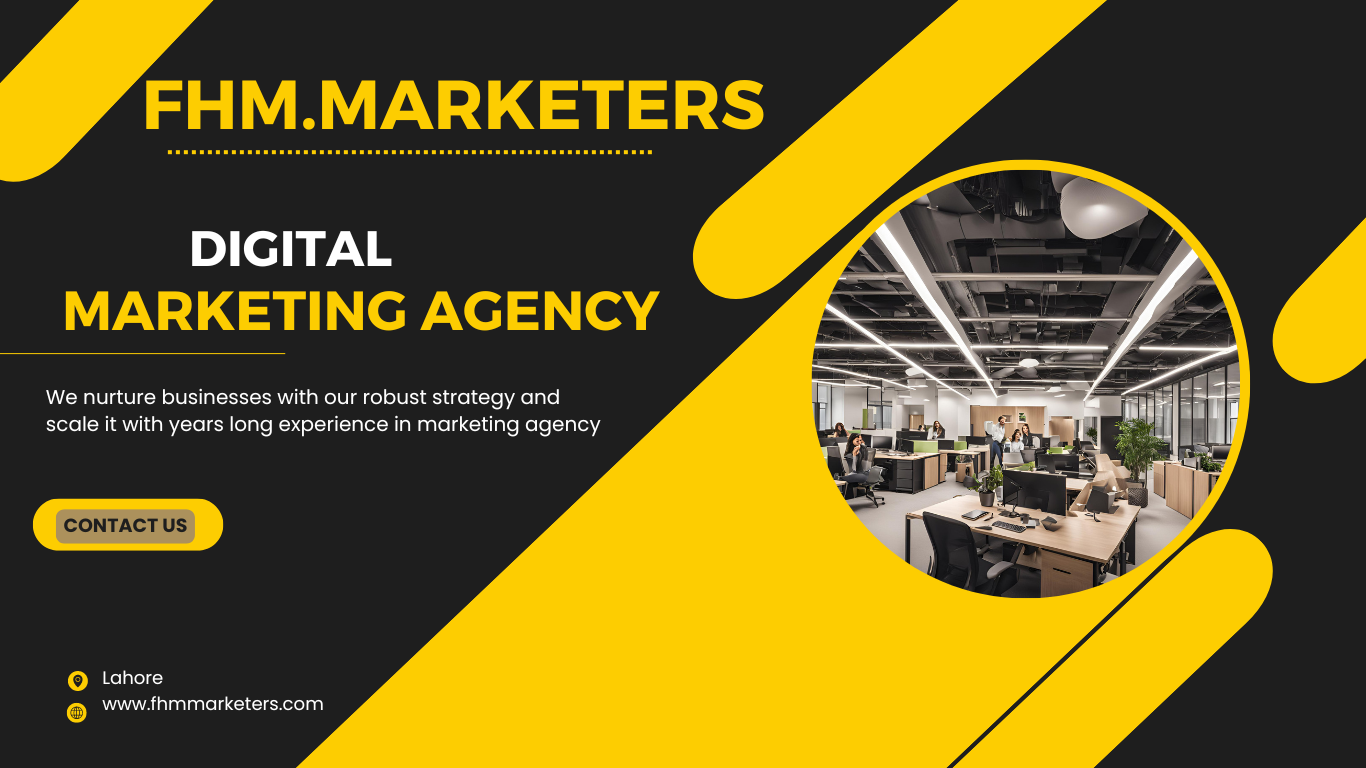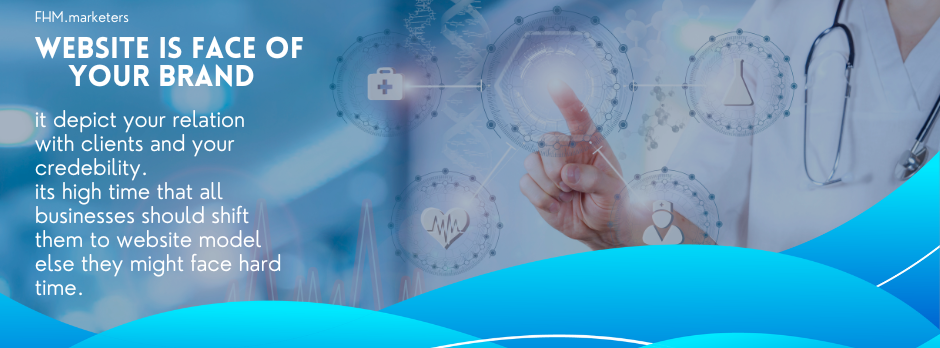
Why Having a Website is Crucial for Your Business in 2024
In today’s digital age, the importance of having a website for your business cannot be underrated Whether you are a small startup or a large corporation, your website acts as the face of your business online. With the world becoming more connected by the day, having a professional online presence is no longer an option—it’s a necessity.
According to statistics, 81% of consumers research a business online before making a purchase decision. If you’re not present on the internet, you’re missing out on a huge chunk of potential customers. Let’s dive with FHM.MARKETERS into why having a website in this era is crucial, backed by statistics.
1. Consumers Trust Businesses with Websites
In 2024, having a well-designed and functional website is often a sign of credibility. 75% of users judge a company’s credibility based on its website design, as reported by Stanford. A professional website helps establish trust and makes potential customers feel more secure about doing business with you.
2. Round-the-Clock Accessibility
Your website is like a 24/7 salesperson, always ready to engage with potential customers. In an era where people are online at all hours of the day, having a digital platform for your business ensures that you can engage with your audience anytime, anywhere. A survey found that 57% of users say they won’t recommend a business with a poorly designed mobile site, showing that website accessibility and design directly influence customer referrals.
3. Increased Customer Reach
In 2024, global internet usage has reached new heights. According to Statista, there are over 5.18 billion internet users worldwide, and this number continues to grow. Having a website allows your business to reach not only your local market but also a global audience. Without a website, you are limiting your business’s potential reach and growth.
4. SEO Brings Organic Traffic
Search Engine Optimization (SEO) is a key aspect of website management that can significantly increase your online visibility. Websites optimized for search engines rank higher on search results, leading to more organic traffic. Research shows that 68% of online experiences begin with a search engine, and if your business is not showing up on the first page of Google, you are losing out on potential leads and sales.
SEO helps businesses get discovered by their target audience at the moment they are looking for services or products you offer. Without a website optimized for SEO, your chances of being discovered in the vast digital landscape decrease dramatically.
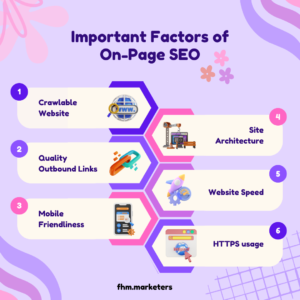
5. Cost-Effective Marketing
Compared to traditional forms of advertising, such as print or television, maintaining a website is highly cost-effective. Once your website is up and running, your marketing efforts—like content marketing, SEO, and social media integration—can all be centered around it. HubSpot found that 61% of marketers say improving SEO and growing their organic presence is their top inbound marketing priority, and your website is at the core of this effort.
6. Showcasing Products and Services
A website acts as an excellent platform for showcasing what your business offers. You can present your products and services in detail, including images, videos, pricing, and customer testimonials. Studies show that 72% of customers say that positive reviews and testimonials make them trust a business more, and what better place to host these testimonials than on your own website?
7. Mobile-Friendly Experience
As of 2024, more than 55% of global website traffic comes from mobile devices. Having a mobile-responsive website is no longer optional; it’s mandatory. Google has even implemented mobile-first indexing, meaning websites that aren’t mobile-friendly will likely see lower rankings on search engine result pages. Ensuring that your website is optimized for mobile is essential to capturing and retaining visitors who prefer to browse on their smartphones.
8. Gaining Valuable Customer Insights
A website with integrated analytics tools like Google Analytics gives you invaluable insights into your customer’s behavior. You can track how visitors interact with your site, which pages they visit, and how long they stay. With this data, you can make informed decisions on how to improve user experience and tailor your marketing strategies. In fact, 70% of marketers state that data-driven marketing is critical to success.
Conclusion
In this digital era, having a website is no longer a luxury; it’s a necessity. It serves as the foundation of your online presence, enhances your credibility, helps you reach a global audience, and is a key driver for organic traffic and conversions. With billions of internet users worldwide, the potential reach and impact of a well-designed, SEO-optimized website are immense.
Investing in a professional website today will not only keep your business relevant but also position it for growth in the years to come.
Make sure your website is not just a digital placeholder but a dynamic hub that engages and converts visitors into loyal customers!
FHM.marketers has been serving since 6 years in this field of developing business ,we are just a click away to plan robust strategy
for your new startup.
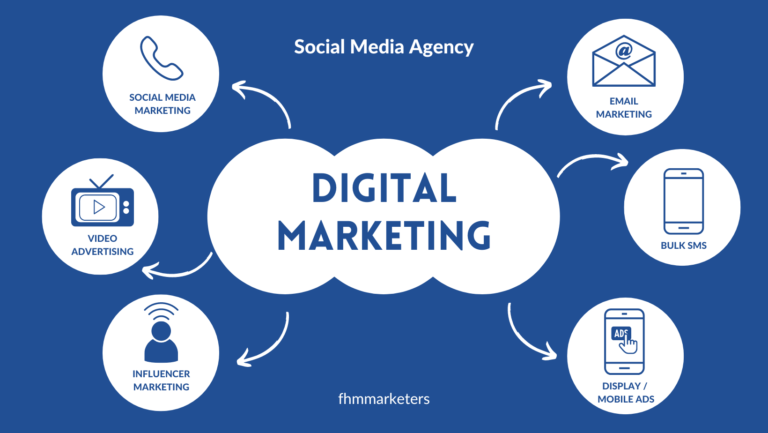
Why Ads Are essential for Business Success in 2024: A Deep Dive into Google Ads & Meta Ads
In the digital age, ads have become one of the most powerful tools to fuel business growth. Whether it’s Google Ads or Meta Ads (formerly Facebook Ads), investing in online advertising can drive significant results for businesses of all sizes. With the right ad strategy, businesses can increase their visibility, reach their target audience, and, most importantly, drive conversions.
In this blog, we will break down why ads are important for businesses in 2024, explain the benefits of both Google Ads and Meta Ads, and show how these platforms can take your marketing campaigns to the next level.
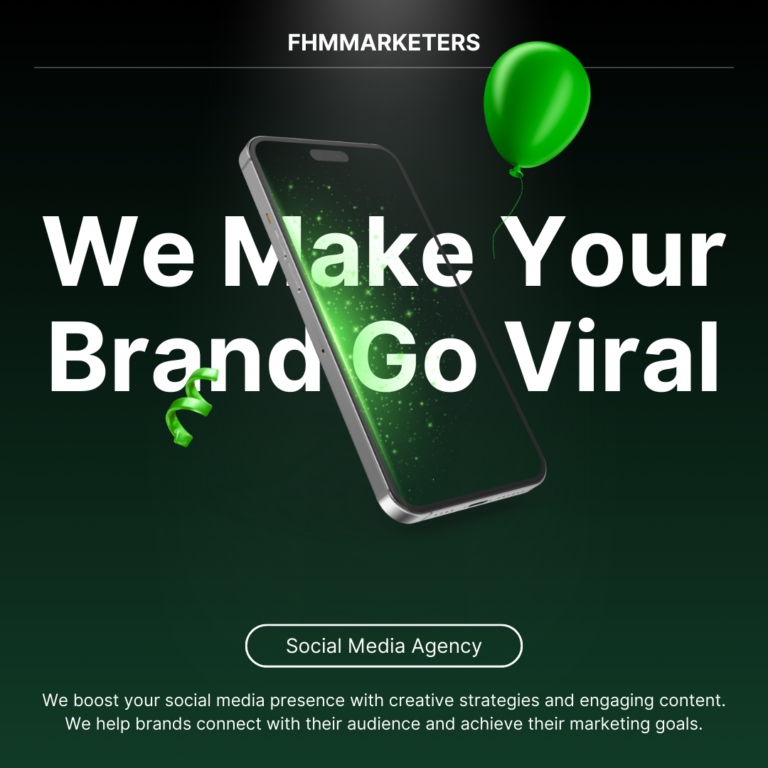
. Targeted Audience Reach
One of the greatest advantages of running digital ads, whether on Google or Meta, is the ability to target specific audiences. With billions of active users, Google and Meta offer advanced targeting options, allowing businesses to reach the right audience at the right time. In fact, Google Ads gives businesses access to over 92% of the global search market. That means when a potential customer is searching for a product or service, your business can appear right at the top of their search results.
With Meta Ads, businesses can target users based on demographics, interests, behaviors, and even connections. Meta has over 2.9 billion monthly active users, making it a powerful tool for targeting specific customer segments and creating highly personalized ad experiences.
2. Cost-Effective Advertising
Running ads on digital platforms is much more cost-effective than traditional advertising methods. Businesses can set their own budgets and scale their ad campaigns as needed. The average cost per click (CPC) on Google Ads is about $2.69, while Meta Ads tend to have a lower CPC of around $0.97. This flexibility allows businesses to control their costs while still generating a significant return on investment (ROI).
3. Measurable Results and Data-Driven Campaigns
The ability to measure results is one of the most significant benefits of online advertising. With Google Ads and Meta Ads, businesses can track key performance metrics like clicks, impressions, conversions, and engagement. This data is invaluable because it helps businesses adjust their strategies in real time to improve performance.
For example, Google Ads allows you to track conversion rates from search and display ads, while Meta Ads gives insight into how users are interacting with your ads on platforms like Facebook and Instagram.
Here’s a comparison of successful campaign results for both Google Ads and Meta Ads based on real-world data:
(Graph to show CTR and conversion rates for Google Ads vs Meta Ads across industries)
- Google Ads: Higher intent-driven clicks, great for search-based conversions
- Meta Ads: Excellent for brand awareness and engagement, cost-efficient for wide audience reach
4. Brand Visibility and Recognition
Both Google Ads and Meta Ads increase brand visibility, but they work differently. Google Ads, especially through search ads, gets your business seen when people are actively searching for products or services. This positions your brand directly in front of potential customers who are ready to convert. In fact, studies show that businesses using Google Ads see an average of 200% ROI.
On the other hand, Meta Ads excel at increasing brand awareness and engagement through visually appealing content on social platforms. Meta platforms like Facebook and Instagram allow for carousel ads, video ads, and stories, making it easier to create interactive and visually engaging content thatresonates with users.
5. Driving Conversions and Sales
Ultimately, businesses run ads to drive conversions, and Google and Meta Ads are top-tier platforms for doing just that. Google Ads tends to drive high-intent conversions because users are already searching for specific products or services. In fact, advertisers who invest in Google Ads see an average of 4-5x ROI on their ad spend.
Meanwhile, Meta Ads are excellent for nurturing leads and creating retargeting campaigns. With Meta’s robust retargeting options, you can reconnect with users who have shown interest in your business, increasing the chances of conversion. Meta Ads are also known for having a strong impact on impulse purchases through Facebook and Instagram.
6. SEO and Ads: The Perfect Combo
Running ads alongside an SEO strategy is a powerful combination for business growth. Ads can drive immediate traffic, while SEO takes time to build organic rankings. When done together, businesses can see a significant uptick in both short-term and long-term growth. In fact, **Google reports that businesses using both Google Ads and SEO can see a double-digit increase in traffic compared to SEO alone.
Conclusion
Whether you’re just starting out or scaling your business, Google Ads and Meta Ads are essential tools for increasing visibility, reaching new customers, and driving conversions. With the ability to target specific audiences, control budgets, and measure results, there’s no better way to grow your business in 2024 than through a strategic online advertising approach.
If you haven’t yet started investing in online ads, now is the time to start. A well-executed Google or Meta Ads campaign can help you maximize your reach, improve your ROI, and take your business to new heights.

The Importance of AI in 2024: How Digital Marketers Can Help Businesses Thrive
In 2024, Artificial Intelligence (AI) has become an essential tool across industries, revolutionizing how businesses operate and communicate with their customers. For digital marketers, AI presents a tremendous opportunity to enhance strategies, drive results, and offer personalized experiences at scale. Let’s explore the significance of AI in today’s fast-paced world and how digital marketers can help businesses leverage AI to stay ahead in the competitive landscape.
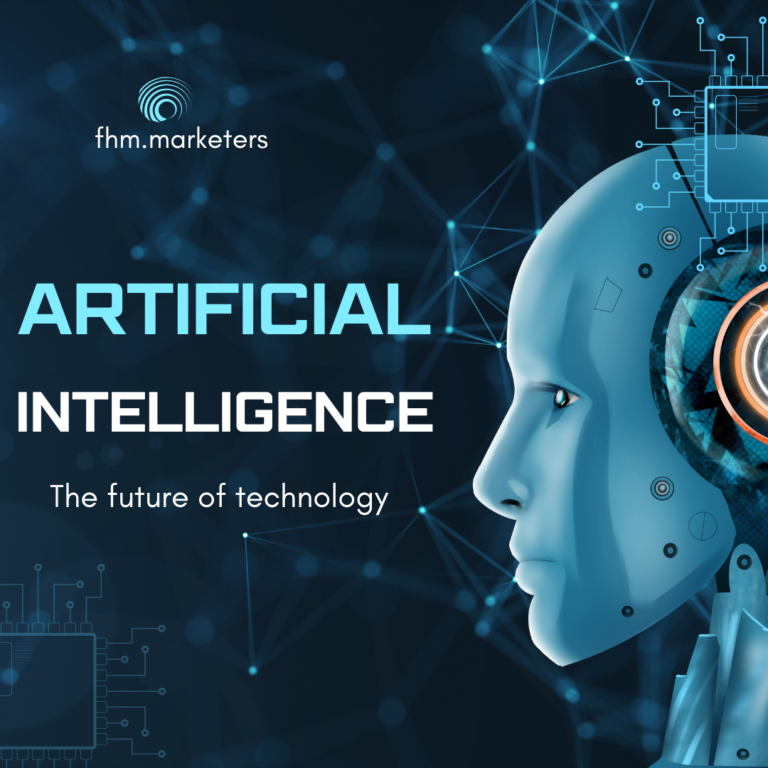
The Growing Role of AI in 2024
As we step deeper into the digital age, AI has permeated nearly every facet of modern business operations. From automating repetitive tasks to delivering personalized content, AI-driven tools have transformed how companies interact with their customers. In fact, AI can analyze vast amounts of data at lightning speed, predict consumer behaviors, and recommend the best actions to boost engagement and conversions.
For instance, machine learning algorithms can help businesses optimize their marketing campaigns, allowing digital marketers to create more targeted and effective content. By analyzing past performance and identifying trends, AI helps marketers make data-driven decisions that lead to better ROI.
How Digital Marketers Can Leverage AI
For digital marketers, AI is more than just a buzzword—it’s a game-changer. Here’s how they can utilize AI to improve marketing strategies and achieve better results:
1. Personalization at Scale
AI enables digital marketers to deliver highly personalized experiences to users based on their behavior, preferences, and past interactions. By using AI-powered tools like chatbots and email automation, marketers can create tailored messages for each customer segment. This personalization leads to higher engagement, improved customer satisfaction, and better conversion rates.
2. Content Optimization
Content is king, and AI is the key to optimizing it. AI tools such as natural language processing (NLP) can analyze the performance of content, predict its effectiveness, and suggest improvements. Marketers can use AI to identify trending topics, improve SEO rankings, and ensure their content resonates with the target audience. SEO-friendly content is more important than ever, and AI can guide marketers in choosing the right keywords, improving readability, and ensuring relevance.
3. Predictive Analytics
With AI, digital marketers can tap into predictive analytics to anticipate future customer behaviors. By analyzing historical data, AI tools can forecast trends, identify potential customer segments, and help businesses allocate resources more efficiently. This helps marketers optimize their campaigns, focus on high-potential leads, and reduce wasted spend.
4. Automation of Routine Tasks
AI allows automation of repetitive tasks, such as scheduling social media posts, responding to customer inquiries, and managing ad campaigns. Automation saves time and ensures consistency across marketing efforts. AI-powered platforms like Hootsuite or Buffer enable marketers to schedule posts across multiple channels simultaneously, while chatbots handle customer queries in real-time, providing 24/7 support.
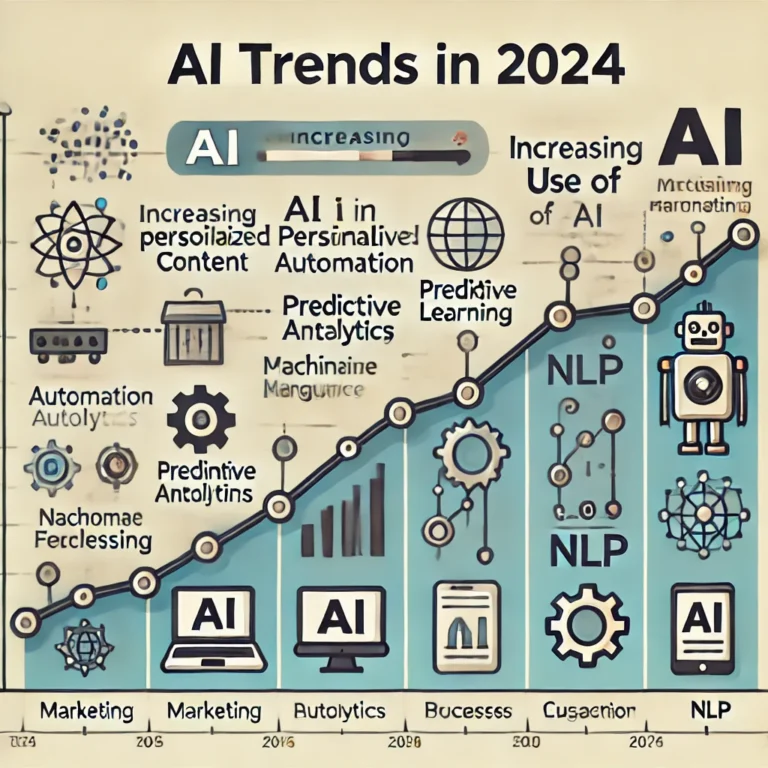
5. Better Decision Making
AI-driven insights allow digital marketers to make smarter decisions by providing data-backed recommendations. Marketers can use AI to assess the performance of their campaigns, identify gaps, and adjust strategies in real-time. Tools like Google Analytics and HubSpot offer AI-powered features that analyze user behavior, track ROI, and guide future marketing efforts.
AI and Digital Marketers: A Winning Combination
The rise of AI has transformed the way businesses operate, and digital marketers are at the forefront of this transformation. By harnessing the power of AI, marketers can create more engaging, personalized, and effective marketing campaigns. Whether it’s through personalization, automation, or predictive analytics, AI helps marketers reach the right audience at the right time with the right message.
Conclusion
In 2024, AI is no longer a distant future—it’s here, and it’s reshaping the world of marketing. For businesses looking to stay competitive, embracing AI is no longer optional. Digital marketers play a crucial role in helping businesses unlock the potential of AI by leveraging advanced tools to optimize campaigns, personalize customer interactions, and deliver better results.
As we move forward, the importance of AI in digital marketing will only grow, making it imperative for marketers to stay ahead of the curve. By doing so, they can ensure that their clients not only survive but thrive in the rapidly evolving digital landscape.

